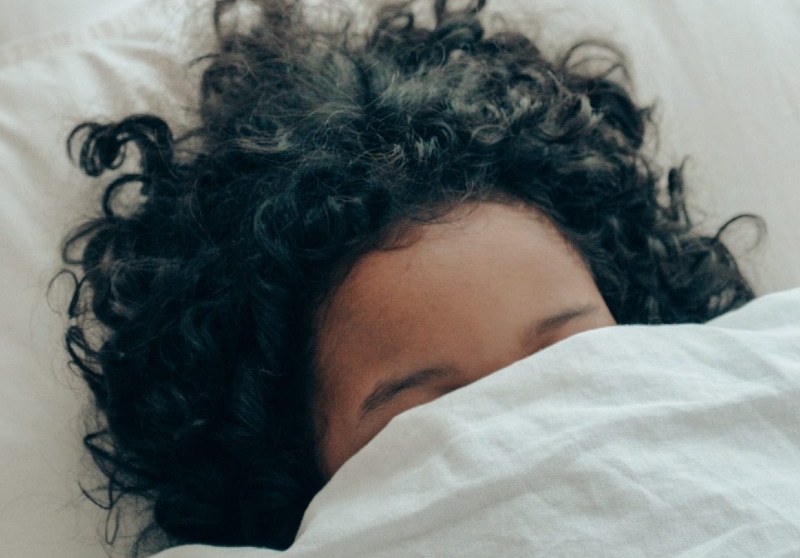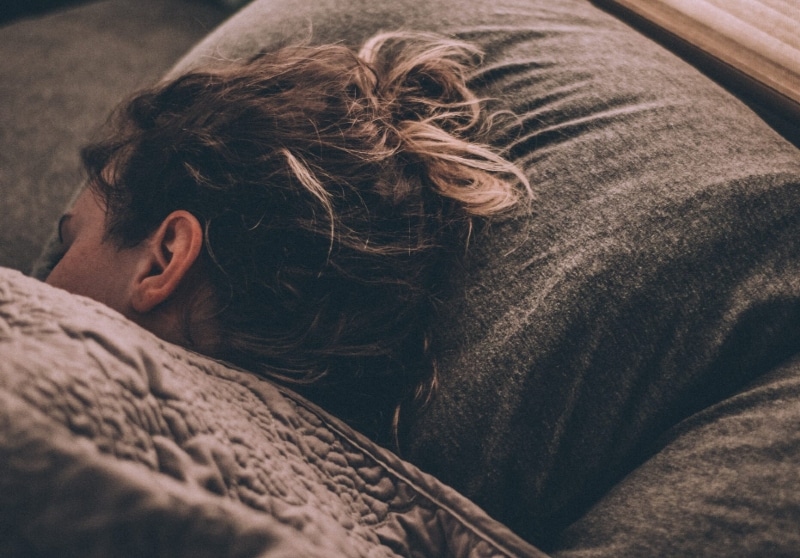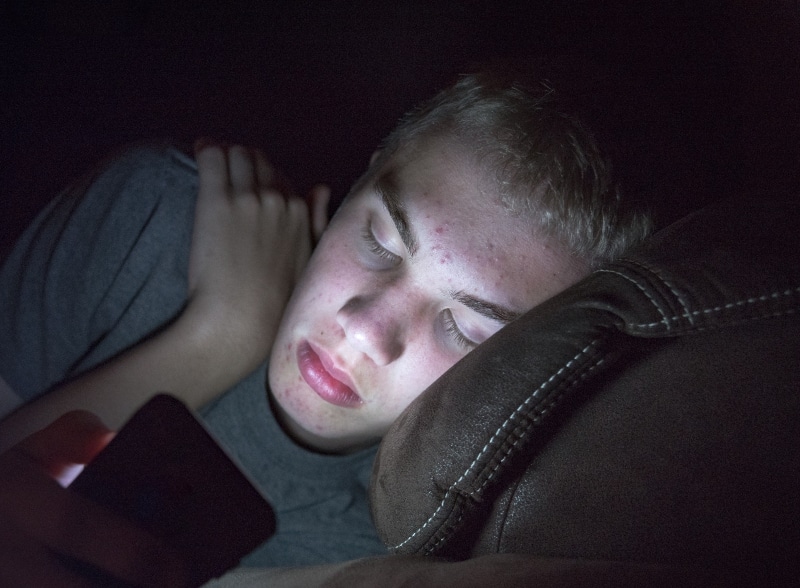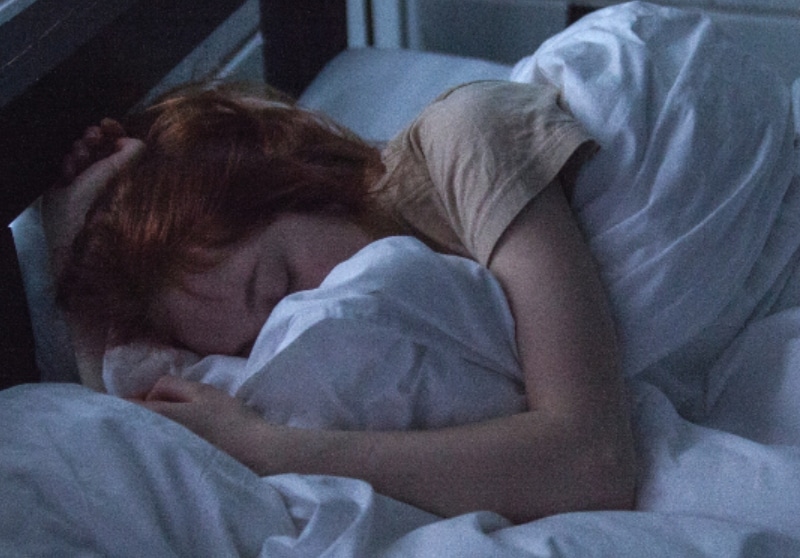Researcher of the Month
Does parental warmth have a positive impact on teens’ sleep?
Sleep problems are extremely common during adolescence and lack of or low quality sleep is increasingly being causally linked to poor mental health. Various research papers have examined how parents might be able to support teens to sleep better. In fact, a recent systematic review identified 103 peer-reviewed publications which examined parental factors associated with teen sleep. Parental warmth, such as showing teens love and care through interactions, involvement and affirmations, was found to protect sleep in early adulthood, yet the nature, directions, and mechanisms of this association remained unknown.
Our Researcher of the Month, Dr Cele Richardson and co-authors, used data from the RAW Project (a large dataset of teenage socio-emotional development) to examine the impact of parental warmth on teen sleep.
Results indicated that parental warmth is indirectly associated with better adolescent sleep through healthier sleep hygiene practices and that better adolescent sleep is often associated with greater parental warmth, because these adolescents have better sleep practices.
Summary
“Parents are ideally placed, and highly motivated, to optimize adolescent sleep.”
In Dr Richardson’s study, 531 Australian teens and one of their parents (96% were mothers) completed assessments each year for five years, starting at the age of 11 and finishing at the age of 15. Both teens and parents reported on levels of parental warmth and teens also reported on their sleep hygiene and behaviours.
The study found that teens who reported higher levels of parental warmth had healthier sleep hygiene practices, were more likely to be early birds (have a preference for ‘morningness’), sleep longer on school nights and be less sleepy during the day. Good sleep practices were also linked to greater parental warmth, mainly because there is likely to be less conflict and strain on the parent-child relationship around bedtimes.
Interestingly, these patterns only emerged when teens themselves reported parental warmth. Parent-reported parental warmth did not predict, nor was predicted by, good quality sleep, suggesting that teens and their parents have different perspectives on parental warmth.
The paper confirms that good sleep hygiene is fundamental to getting high quality sleep. Engaging in fewer sleep hygiene practices consistently predicted worsening of sleep and daytime functioning, and teens at risk of inadequate sleep tended to engage in fewer sleep hygiene practices over time. Sleep hygiene practices include restricting caffeine and alcohol intake in the evening, exercising during the day, reducing stress, minimising screen use overnight, trying to keep a regular sleep routine, fewer daytime naps and maintaining a calm sleeping environment.
The study showed that young people may increase unhelpful practices, such as reducing daytime activity to conserve energy or using substances to promote sleep and minimise daytime impairment, in an effort to overcome poor sleep. This can inadvertently contribute to sleep troubles.
Implications
“Results from the current study suggest that parents should approach interactions with their teenager about sleep and sleep-related behaviours in a loving and caring way (i.e. as opposed to in an authoritarian manner). In doing so, parents may better support their teenager to develop the self-regulatory sleep hygiene skills required to promote optimal sleep.”
Implications for parents
While it is the developmental norm that teenagers become increasingly evening oriented (night owls) and tend to get less sleep, parental warmth may protect against these changes. Alongside setting clear limits and rules around sleep, the paper encourages parents to foster a warm relationship with their teens, providing them with emotional support, encouragement and positive regard, and spending time together doing shared activities. The authors advise that parents should try to support teens to develop self-regulatory sleep hygiene skills by approaching interactions about sleep in a loving and caring way, not in an authoritarian manner.
Adolescent sleep problems can also place understandable strain on the parent-child relationship and on other family members. Whilst it’s normal for teens to shift toward later nights, this may lead to conflict over bedtimes and morning routines. Getting less sleep and feeling sleepy during the day can increase emotional reactivity which might also adversely impact parent-child relationships and impact on parental warmth. In fact, previous research has shown that parents of evening-type adolescents rate their child as more lazy, less trustworthy and more worrisome, compared to parents of morning types.
It’s important to recognise that decreased parental warmth may further perpetuate poor sleep, creating a vicious cycle. It is possible that seeking treatment for sleep issues might improve not only teens’ sleep, but also the quality of their relationship with the parents and family.
Implications for schools
This study support the inclusion of sleep hygiene content in adolescent sleep interventions. When it comes to school-based sleep hygiene interventions, many increase teens’ sleep knowledge without changing sleep behaviours, which is critical for actual improvement in sleep. Schools implementing sleep hygiene interventions should seek programmes that adopt a knowledge-to-action framework and those which foster teen’s self-efficacy and self-regulation of sleep. Schools might also like to create strong parent partnerships, emphasising the importance of loving, warm communication around sleep and more generally.
Resources Created from and Related to this Research

Dr Cele Richardson, Clinical Psychologist and Lecturer in the School of Psychological Science and Centre for Sleep Science at the University of Western Australia.
Dr Cele Richardson’s research primarily focuses on sleep and mental health in young people. In particular, Cele has worked to develop the evidence base for novel treatments for sleep problems such as Delayed Sleep Wake Phase Disorder and Insomnia in paediatric populations. Most recently, Cele has moved into applying these effective sleep treatments to other populations, such as in young people with depression. Sleep and internalising problems, such as depression and anxiety, commonly co-occur and Cele works to elucidate mechanisms linking sleep with emotional problems in adolescence. Ultimately, through her research and clinical practice, Cele aims to optimise sleep and mental health in young people.








